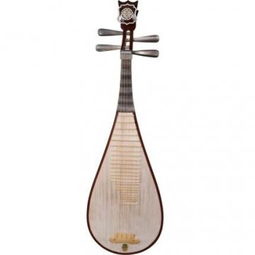Four Questions to Know Before Learning Pipa
Many people will have many questions before learning Pipa, such as whether it is difficult to learn, how long it takes to learn music, etc. The questions asked are summarized.

Is it difficult to learn Pipa
Rumors say that the pipa is difficult to learn, but in fact it is relatively difficult. Perhaps compared with other musical instruments, the pipa is more difficult to learn, and the first and second lessons are particularly critical, requiring the teacher to correct the posture, so it is relatively boring. But learning anything requires a persevering heart. If you don't persevere, you won't be able to learn even a simple musical instrument. I have been learning the piano since I was a child, and I may have no distractions. I have never felt that there is any difficulty in learning the pipa. Therefore, if you want to learn, you don't need to ask so many difficult questions. You mainly ask yourself whether you like it or not. Like it is the motivation to keep going.
How long does it take to learn music
This question is very unprofessional. The first two lessons are about posture, picking, and then pressing the strings. If you know where 12345 is, you can play the little bee. This is a piece of music. In fact, as long as you know the main melody and scales, you can play basically all the tunes, and you can also achieve the purpose of playing general pop tunes. It's mainly whether you play well or not, how the sound quality is, and what technique you use to play, such as picking or vibrato or vibrato in a certain place, it will be more in line with the artistic conception. These skills need the teacher's advice and their own continuous practice.
Can you teach yourself
To tell the truth, self-learning pipa is a very unreliable thing. I think the most difficult lesson for Pipa is the first lesson, learning to play and pick. The details of all aspects of picking are very demanding, and it is very easy to make mistakes. If there is no teacher on the side to guide, accidentally forming the wrong playing style, once used to it, it is difficult to correct. Even if you ask the teacher to guide the correction process in the future, it will be very painful, and it may not be able to correct it successfully.
What piano to buy for beginners
Many babies are struggling with what kind of piano they should buy when they start learning the piano. First of all, there is no need to buy a performance-grade piano, such as rosewood or the like, because if you can't stick to it, it will feel very wasteful. Furthermore, the piano practice process will cause wear and tear on the piano. It is not impossible to use a performance-grade piano as a practice piano, as long as you have money. So can I buy a few hundred dollars? The answer is that it is best not to, because the guitars that are too cheap are afraid that some intonations will not be so rigorous, after all, they are cheap. The effects of tone inaccuracy on you are long-term, and since you're a beginner, it hurts too much. And the sound quality is not good, and the uncomfortable pressing of the strings will also affect your interest in learning. After one or two years of study, the basic rules are mastered, and the piano skills have entered another stage before considering changing the piano.
Finally, I would like to give some advice to babies who want to learn but have not yet learned. It is not easy to learn Pipa. It takes time to practice. It may be very hard at the beginning. Your right hand will be sore, and your left hand will hurt and calluses will form. So before you start studying, please think carefully about whether you really like music and pipa, and whether you can bear the boring and hard work in the learning process. If you are still hesitating, then don't start casually, don't buy pianos casually, and don't ask for leave casually. If you really like it and make up your mind, then with awe, act quickly and stick to it. Today next year, you will be a different version of yourself.
 渝公网安备 50010702504639号
渝公网安备 50010702504639号